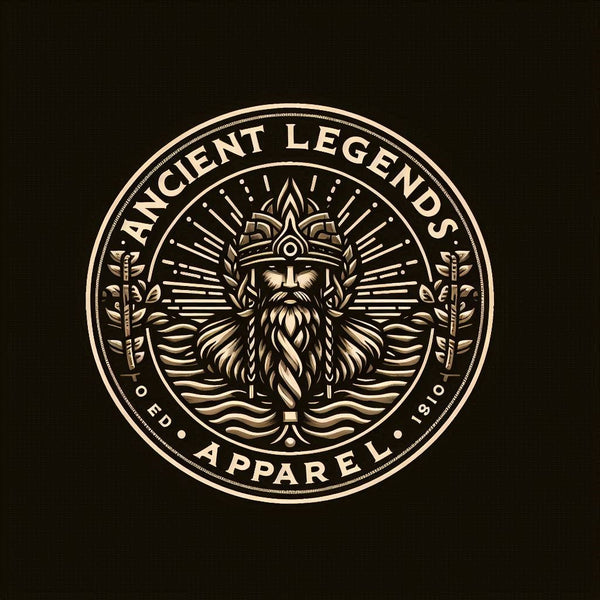The Evolution of Gods in Roman Empire
Karl FShare
INTRODUCTION
The ancient Roman Empire, stretching from the sun-dappled vineyards of Italy to the dark, mysterious forests of northern Europe, was a realm steeped in legend and mythology. It was a place where gods roamed from the snowy peaks of Olympus to the bustling streets, where warriors were as wrapped in myth as in their shining armour, and where animals possessed powers beyond human comprehension. This sprawling empire, unparalleled in its complexity, housed a pantheon of deities, each charged with the governance of different aspects of existence. As the empire grew and evolved, so did its theology, reflecting alterations in societal values and the influences of conquered cultures. In this piece, we delve into the evolution of gods in the Roman Empire, examining their origins, cultural contexts, interpretations, comparisons with other cultures, and their enduring legacy in pop culture and modern society.
ORIGIN AND CULTURAL CONTEXT
The story of Roman gods begins with primal forces, deities devoid of personality, embodying elements of nature. Days and months were personified and venerated. Even doors had a god, Janus, the two-faced deity presiding over entrances and exits. As Rome grew from a small village to a governing force, so did the complexity of its theology. The increasing interaction with the Greeks led to the absorption of their pantheon. Roman gods like Jupiter, Mars, and Minerva became identified with their Hellenic counterparts, Zeus, Ares, and Athena. Roman religion was not static but adaptive, making the mythologies of absorbed cultures their own.
THE LEGEND OR STORY
Central to the evolution of godhood in Rome lay the story of Rome's foundation itself. The Legend of Romulus and Remus is an epic tale of divine encounters, fratricide, and city-building. Born from the union of the vestal virgin Rhea Silvia and Mars, the god of war, the twins were marked by the divine. Surviving attempted infanticide and suckled by a she-wolf, the pair grew to build Rome, only for Romulus to kill Remus in an argument over the city's hills. This legend not only told of Rome’s foundation but also enforced a potent message: Rome was a city of greatness, born of divine blood, won by strength, and destined to rule.
INTERPRETATIONS AND SYMBOLISM
Roman gods also evolved as Rome's societal ideals transformed. Mars, once a god of vegetation and fertility, transformed into a symbol of Roman military might. Minerva, initially venerated as the goddess of wisdom, came to symbolize crafts, trade guilds, and embody the aspirations of Rome's burgeoning middle class. In these transformations, we trace changes in societal values, as different aspects of life gained importance, altering the gods themselves, who were reflections of society.
COMPARISONS IN OTHER CULTURES
The Roman pantheon, despite its unique flavor, was not isolated. Their gods mirrored counterparts from other cultures, such as the Greeks, Etruscans, and later, the Egyptians. The assimilation was so vital that Roman gods even acquired Greek mythologies. For example, the Roman God Mercury was deeply influenced by Hermes' Greek depiction—the traveller, trickster, and divine messenger. The deity Isis, initially an Egyptian goddess associated with healing, became a significant figure in Roman religion after Egypt's conquest in 30BC.
MODERN REFERENCES AND POP CULTURE
The impact of Roman gods is still palpable in modern culture. They grace our screens in movies like "Gladiator," "Spartacus," or even popular franchises like Marvel’s "Thor" and DC’s "Wonder Woman," proving that their resonance remains profoundly embedded into the cultural psyche. Furthermore, their names are etched into our daily lives. Companies take their names from these ancient deities, such as the high-speed delivery company, Mercury, embodying the messenger god's fleetness.
LEGACY AND LASTING MYSTERIES
Despite the fall of the Roman Empire, the pantheon continues to enchant us, locked in marble statues, intricate mosaics, and roman coins, and their stories, encrypted in ancient texts, imbibe a lasting sense of wonder. The mysteries remain. How did these gods evolve to embody societal values and changes? How did people perceive them? What practices shaped their worship? As scholars research and excavate deeper, these ancient narratives continue to unreel, each layer of history painted with the dreams and hopes of a people bridging the rift between the heavenly and terrestrial. The evolution of gods in the Roman Empire underscores the pulsating, ever-evolving nature of culture and society, a testament to Rome's enduring legacy that continues to inspire conscious and subconscious elements of our modern world.
